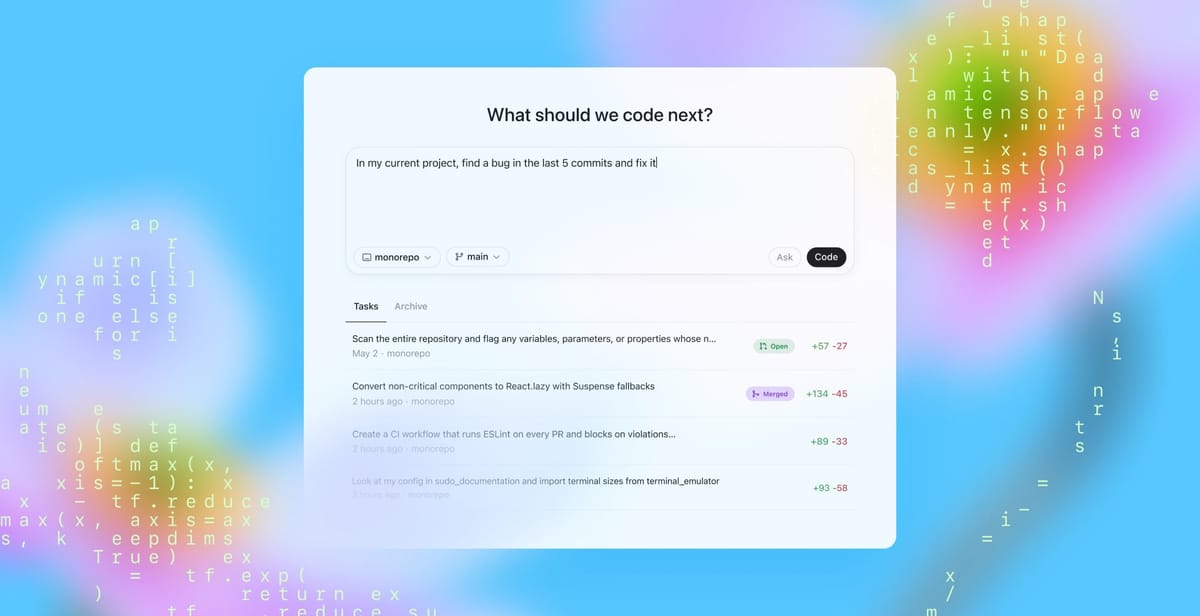
OpenAI is making its Codex coding agent more powerful and accessible, adding the ability for it to access the internet, and expanding availability to ChatGPT Plus subscribers.
Key Points:
- Codex now available to ChatGPT Plus users
- Internet access during execution (with guardrails)
- Will update existing pull requests instead of starting new ones
- Voice dictation for tasks is now live
The biggest change is the ability to connect to the internet during task execution. Plus, Pro, and Team users can now choose to let Codex reach out to the web when it's working on their code. That means the agent can install base dependencies, run linting and testing without manual setup, or execute scripts that need to hit staging servers.
It's a feature developers have been requesting since Codex launched, but OpenAI is rolling it out carefully. Internet access is off by default and comes with granular controls—you can restrict which domains Codex can reach and limit HTTP methods. The company says it's also monitoring for prompt injection attacks, where malicious actors might try to hijack the agent's web requests.
The expanded access to ChatGPT Plus users is significant too. Previously, you needed an Enterprise, Team, or Pro subscription to use Codex, which put the tool out of reach for individual developers and smaller teams. Now anyone paying $20 a month for ChatGPT Plus can spin up coding environments and delegate programming tasks to the AI.
OpenAI also added voice input, letting you dictate tasks instead of typing them out. It's a small quality-of-life improvement that could make the tool feel more natural, especially for developers who prefer talking through problems.
The pull request updates are more subtle but equally important for workflow. Instead of creating a new PR every time you iterate on a task, Codex can now update existing ones. That should cut down on repository clutter and make code review processes smoother.
There are also a bunch of under-the-hood improvements: bigger diff limits, faster setup scripts, better iOS behavior, and a more polished GitHub connection flow. And for teams using SSO or social login, two-factor authentication is no longer mandatory.
These updates come as competition in AI coding tools heats up. GitHub Copilot dominates code completion, while tools like Cursor and Windsurf are pushing into full development environments. It’s not quite a full-on autonomous agent yet, but with these updates, Codex is becoming something more than just a coding assistant—it’s starting to look indispensable for real-world development workflows.
